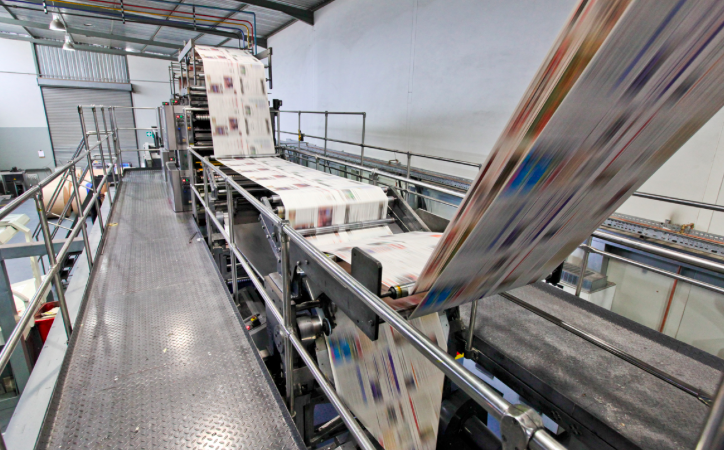A few media startups are leading the way and showing how not for profit journalism can be done.

Our national newspapers pride themselves on upholding the freedom of the press, reflecting their readerships’ interests and acting as the fourth estate. When the lords recently amended the Data Protection Bill the press argued that it was going to have a chilling effect and limit press freedom.
The debate also highlighted the shift in revenue from advertising in newspapers to relying on the big data and detailed demographics offered by Google and Facebook, who are projected to own 71% of the advertising market in the UK by 2020.
What wasn’t recognised seemed to be the difficulty of ensuring press freedom in the context of advertising and profitability. The liberal image of the press and media as protectors of free speech and debate breaks down a bit when you take this into account.
Rates for advertising aren’t cheap. A full page advert in the Daily Telegraph costs £46,000. For the Evening Standard it’s £70,210, and the Times £27,195.
Given the large amounts spent on a single page advert, you can imagine the commercial considerations when placing news articles and the layout.
But the generally held view within Fleet Street is that advertising is kept separate from editorial decisions. When this convention is challenged, the results can be dramatic.
In 2015, there was a spectacular fall out between The Daily Telegraph and its former chief political commentator, Peter Oborne. Oborne had recently resigned due to one of its main advertisers, HSBC, influencing their editorial coverage.
He noted: “…The Telegraph’s recent coverage of HSBC amounts to a form of fraud on its readers. It has been placing what it perceives to be the interests of a major international bank above its duty to bring the news to Telegraph readers. There is only one word to describe this situation: terrible.”
The Telegraph’s response was clear: advertising pays for news but the two are distinct and to question this is dissent of the highest degree.
The orthodox history of the press argues that it was advertising that ensured press freedom from state interference and control.
But advertisers are not neutral. In absorbing the costs of the production of news – advertisers expect to be accommodated.
For instance, the Daily Telegraph highlighted the Guardian’s own issue with editorial independence in 2015. The Telegraph published an article about its coverage of Iraq that had been changed to appease its advertiser, Apple.
Even with the new rebranding, editorial decisions such as the layout or supplements haven’t escaped the watchful eyes of its advertisers, who included: DFS, Emirates, Vodafone, Aldi and Volkswagen.
The impact of hosting advertisers means that coverage on climate change, ecological resource limits, the impact of rampant consumerism are put aside.
This isn’t to say that they won’t ever be featured or discussed but layout and placement are crucial to ensure that advertisers are kept contented.
Both Morgan Stanley and BP have operated an ad-pull system, in which “objectionable editorial coverage,” is flagged and their advertising withdrawn from print publications.
As Oborne highlights, the legitimacy of newspapers is with their readers. Yet the decline of advertising revenue has not established a period of self-reflection.
Famously, the News of The World closed after the phone hacking revelations. However, the impact wasn’t the loss of integrity from its readership, rather it was the loss of major advertisers including: Boots, Sainsbury’s Npower, and Halifax.
If the press were free of vested interests it would be able to offer the distilled coverage on topics such as climate change, resource depletion, war, food scarcity and environmental degradation.
Highlighting the gap in public knowledge, Climate Feedback was established to fact check news around climate change. Other organisations also highlight need for alternatives to the corporate journalism such as: Media Reform UK and The Media Fund’s Media Democracy Podcasts.
Given the constant pressure of retaining an online readership, which at one newspaper has led to the ripping of stories and the prevalence of clickbait. It’s clear the traditional model of journalism isn’t working.
A new model of journalism has been established by De Correspondent, whose twelve founding principles are worth reading. In particular, they argue for no adverts or target groups as they trust and respect their paying members to support their journalism.
In the UK, there is Novara Media and OpenDemocracyUK who rely on donations, grants, and their readers to fund them.
News organisations led by trust and informed by ethics instead of profits and advertising are alternatives that we badly need – let’s hope they flourish in the future.
Huseyin Kishi is a member of the Green Party and a media reform activist. He can be found on Twitter here.
To reach hundreds of thousands of new readers and to make the biggest impact we can in the next general election, we need to grow our donor base substantially.
That's why in 2024, we are seeking to generate 150 additional regular donors to support Left Foot Forward's work.
We still need another 124 people to donate to hit the target. You can help. Donate today.




One Response to “The only way to save journalism is to cut out the advertisers. Here’s how to do it”
Chris Palin
Applaud all the alternative press including LFF. All are doing a good job. Stay I’ll read some traditional but only on line. Frightening how press in UK directs public opinion & is now creating dangerous & intolerant society.